Interview/discussion with IMU Presidents
Durée :
Mathematics without Borders: The Centennial of the International Mathematical Union
Du au
Palais Universitaire, Strasbourg
We celebrate the Centennial of the International Mathematical Union in Strasbourg, founded in 1920 at the ICM in the same location. The International Mathematical Union (IMU) was founded in 1920 at Strasbourg, marked by the peculiar situation after World War I. Today’s IMU was re-created after World War II. The centennial of the foundation is a moment to reflect on the long and varied history of international cooperation of mathematicians and show that the modern IMU seeks to include mathematicians from all countries
Thème(s) : Mathématiques
Producteur : Université de Strasbourg
Réalisateur : Université de Strasbourg
Opening session
Welcome address
Carlos E. Kenig
Bertrand Rémy
Michel Deneken
Nalini Joshi
Susan Friedlander
Hyungju Park
Volker Mehrmann
Nouzha El yacoubi
Frédérique Vidal
News from the ICM 2022
Stanislav Smirnov
Welcome address
Daya Reddy
Capacity and networking project (CANP): a key issue of the International commission on mathematical instruction (ICMI) at the turn of the 21st century
Jean-Luc Dorier
At its creation in 1908, ICMI’s main goal was to develop a comparative study of the teaching of mathematics in secondary education of 25 countries. When it became a sub-commission of IMU in 1952, ICMI had to deal with the new math reform. At the turn of the 21st century, marking its 100 years of existence, ICMI could benefit from more mature research structures and results in mathematics education in many countries. Some new challenges could thus be faced and the actions towards developing countries became an important goal. In a partnership with IMU (and CDC) and UNESCO, ICMI started in 2011 the first CANP project in Mali aiming at creating a network in Sub-Saharan African countries, to face the challenges of mathematics education. In 2018, the fifth CANP was launched in Latin America. Since then,the main challenge is to enhance these 5 CANP and help them develop and maintain some sustainable networks and activities. In this talk, I will present the main issues and events that marked these 10 years of CANP.
The Sinuous Road towards Global Mathematics
Norbert Schappacher
28 ICMs, 2 IMUs, and a moving web of international organizations
Based on the book I wrote, the talk will survey the development of international cooperation in mathematics from the 19th century till today, and the way it was affected by ambiant politics as well as by the transformation of mathematics.
Monday afternoon
Mathematical challenges in scientific computing
Annalisa Buffa
Are there exquisite mathematical challenges in scientific computing ? There are many challenges, and mathematics is often a very powerful tool to tackle them. The constraints to be matched are not only the ones coming from mathematical theory but also from algorithmic aspects as the overall computational cost or the robustness of the underlying computations. In this respect, numerical analysis and scientific computing are interdisciplinary, in nature. I will present a few challenges within my research area, giving hints on the mathematical tools that we develop to successfully tackle them.
Rigid local systems: some arithmetic properties
Hélène Esnault
Rigid local systems should be of geometric origin according to a deep conjecture by Carlos Simpson. We survey arithmetic consequences this conjecture has, and which can be proved (joint work with Michael Groechenig). We mention a very recent spectacular application it has.
Hardness of Approximation: From the PCP Theorem to the 2-to-2 Games Theorem
Subhash khot
Computer scientists firmly believe that no algorithm can efficiently compute optimal solutions to a class of problems called NP-hard problems. For many NP-hard problems, even computing an approximately optimal solution remains NP-hard. This phenomenon, known as the hardness of approximation, has numerous connections to proof checking, optimization, combinatorics, discrete Fourier analysis, and geometry. The talk will provide an overview of these connections. It will address why graph coloring is a computationally hard problem, how it is possible to check a proof without even looking at it, why computer scientists love the majority vote, and whether a shape exists that looks spherical as well as cubical. It will explain how all this fits into a 30-year research program starting with the foundational Probabilistically Checkable Proofs (PCP) Theorem and leading to the recent 2-to-2 Games Theorem.
Linking and the 3-body problem
Etienne Ghys
I would like to present one of my favorite conjectures concerning the dynamics of the restricted planar three-body problem. Three bodies moving in the plane attracting each other by a gravitational force. This will be an opportunity to talk about Gauss, Hadamard, Poincaré, Birkhoff, and others... all in twenty minutes!
The Mathematical Quest of Information Processing
Stéphane Mallat
What is information ? How can it be processed and analyzed ? This is also the one hundred anniversary of Ronald Fisher foundations of mathematical statistics, including Fisher information. Followed by Shannon information theory it opened a considerable range of mathematical questions to represent high dimensional data and probability distributions. From Fourier analysis to wavelet bases and neural networks, I will outline a very brief story of mathematical information analysis, ending into opens problems to understand algorithms used in artificial intelligence.

